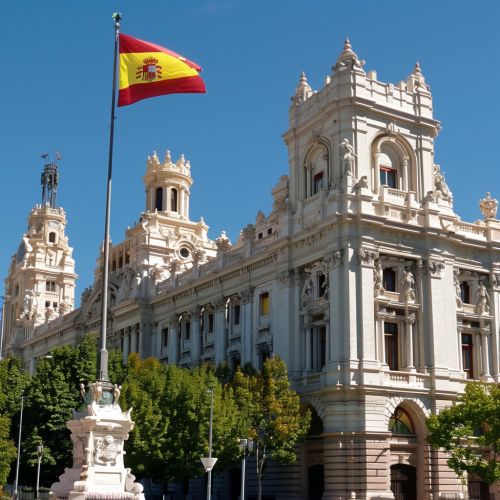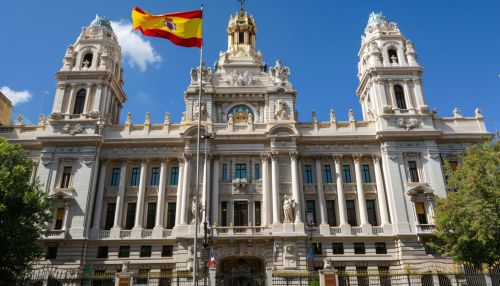Government of Spain
Government Structure
The Government of Spain operates as a parliamentary constitutional monarchy. This means that the monarch is the head of state, while the president is the head of government. The government is divided into three branches: the executive, legislative, and judiciary. The executive branch is headed by the President of the Government, who is appointed by the monarch and confirmed by the Congress of Deputies. The legislative branch consists of the Cortes Generales, which is a bicameral parliament composed of the Congress of Deputies and the Senate. The judiciary is independent of the executive and the legislature, with the Supreme Court being the highest judicial body in Spain.


Executive Branch
The executive branch of the Spanish government is headed by the President of the Government, commonly referred to as the Prime Minister. The Prime Minister is appointed by the monarch and must be confirmed by the Congress of Deputies. The Prime Minister is responsible for domestic and foreign policy, legislative initiative, and the execution of laws. The Prime Minister is also the commander-in-chief of the Spanish Armed Forces.
The executive branch also includes the Council of Ministers, which is composed of the Prime Minister, Deputy Prime Ministers, and various ministers who head government departments. The Council of Ministers is responsible for policy making and administration of the government.
Legislative Branch
The legislative branch of the Spanish government, the Cortes Generales, is a bicameral parliament consisting of the Congress of Deputies and the Senate. The Congress of Deputies is the lower house and has 350 members who are elected by popular vote. The Senate is the upper house and is composed of 266 members, of which 208 are elected by popular vote and 58 are appointed by regional legislatures.
The Cortes Generales is responsible for the passage of laws, the approval of the budget, the ratification of international treaties, and the control and supervision of the executive branch.
Judiciary Branch
The judiciary branch of the Spanish government is independent of the executive and legislative branches. The judiciary is responsible for the administration of justice in Spain. The highest judicial body in Spain is the Supreme Court, which is composed of judges appointed by the General Council of the Judiciary.
The judiciary also includes the Constitutional Court, which is responsible for interpreting the Constitution and reviewing the constitutionality of laws.
Political Parties and Elections
Spain operates under a multi-party system, with the Spanish Socialist Workers' Party and the People's Party being the two major parties. Elections for the Congress of Deputies and Senate are held every four years. The Prime Minister is usually the leader of the party that has the most seats in the Congress of Deputies.
Autonomous Communities
Spain is divided into 17 autonomous communities and 2 autonomous cities. Each autonomous community has its own government, known as a "Junta" or "Government Council", which is headed by a president. The autonomous communities have a high degree of autonomy and are responsible for a wide range of functions, including education, healthcare, and social services.
